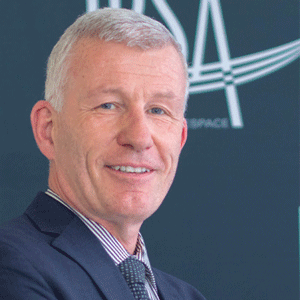
The Institute of Polytechnic Science and Aeronautics (IPSA): A Centre Of Excellence For Aeronautics Aspirants
By Stéphane Roberdet, Head
French higher education involves 2.5 million students, where 12 percent of them are from abroad. All of them are benefiting from highly diversified training, and they are enrolled in every field, at every level. With the industry growing at a moderate rate since the pandemic, as education remained a top priority for the government. According to the Ministry of National Education, Higher Education and Research, public expenditure on education continuously increased, accounting for nearly seven percent of GDP. The major part of the funding was guaranteed by the state and local governments.
Set up in France in 1961, The Institute of Polytechnic Science and Aeronautics (IPSA) was developed with a vision to prepare young engineers for all potential occupations in the aeronautics and space business. In 2021, as a result of the adoption of new French law, PACTE (acronym P.A.C.T.E stands in English for Business Growth and Transformation Action Plan), IPSA became the centre for training strong-willed, creative, and responsible aeronautical engineers capable of transforming the aeronautical industry to face the socio-environmental challenges, the most significant of which is the decarbonisation of air transport.
"The higher education system in France is particular in the world. We have indeed two types of institutions: Universities, as in all other countries in the world, and since the beginning of the 18th century, we also have `grandes écoles' which are either engineering schools or business schools. IPSA is one of the 210 French engineering schools. IPSA has two specificities: the first one is that we train engineers for all possible jobs requiring a Master's level for the aeronautics and space industry from Research & development of new concepts far upstream, to the operation of airlines and recycling of aircraft downstream. The second specificity is our will to train our students on socio-environmental issues and the technologies necessary for the evolution of the sector", shares Stéphane Roberdet.
Since its inception, IPSA has seen a significant increase in enrolment, going from a few dozen in the 1960s to about 350 today. Graduates of the school work in high positions in large companies recognized worldwide. Among them we can mention for example Philippe Harache who was vice president of Airbus Helicopter, but also a former technical director of the F1 MacLaren team or yet another one who manages the assembly line of Airbus in Toulouse.
Students in the third year have two options for their second semester: Aerospace Vehicles, which focuses more on mechanical engineering for aeronautics, or Aerospace Systems, which focuses more on electrical engineering and computer sciences for aeronautics. "Our programme divides into six separate majors in the fourth year (at the master's level) to cover all areas of technology. To cover every work possible, we have finally offered ten distinct possibilities in the past year. Students typically select IPSA because of our program's depth in aeronautics and space, both in terms of the technical subjects we teach and the aeronautical vocations", speaks Stéphane.
IPSA has officially started all of its courses in English, bringing aeronautics knowledge to the rest of the world. Following a strict international service and study direction, each student is closely monitored during the academic course, and each Indian student is assigned a French student to assist him/her throughout their stay in France.
"We would tell them that everything and every job in aeronautics exist in France, and IPSA prepares for all of these jobs which require a Master's degree. Thus the students trained at IPSA will have a very successful professional career in the aeronautics industry, but also, de-pending on the opportunities, in other industrial fields, as aeronautics uses the most advanced technologies. IPSA believes that the most important thing is to prepare engineers to transform the sector from top to bottom to respond to climate change, notably by introducing electric aircraft technologies for short-haul flights, hydrogen technologies for medium-haul flights and alternative fuels to fossil fuels for long-haul flights.
But of course, it is the entire aeronautics ecosystem that will have to change at the level of airports, air traffic control, & more, and the states will have an essential role to play in enabling these transformations at the level of a massive energy transition, with nuclear and renewable energies, especially wind and solar panels to produce electricity", elaborates Stéphane.
The college offers scholarship programmes for deserving students. These scholarships are awarded based on student merit and economic criteria, regardless of nationality. Furthermore, Campus France also offers a special scholarship called the `Charpak Scholarship' (named after the famous Nobel Prize French physicist). In addition to scholarships, IPSA assists students with industrial internships. Kavaskar Indirakumar, for example, found an internship at Hutchinson at the end of his training in composite materials for aeronautics after attending the International Jet Composites exhibition on behalf of IPSA, which is held every year in Paris.
Set up in France in 1961, The Institute of Polytechnic Science and Aeronautics (IPSA) was developed with a vision to prepare young engineers for all potential occupations in the aeronautics and space business. In 2021, as a result of the adoption of new French law, PACTE (acronym P.A.C.T.E stands in English for Business Growth and Transformation Action Plan), IPSA became the centre for training strong-willed, creative, and responsible aeronautical engineers capable of transforming the aeronautical industry to face the socio-environmental challenges, the most significant of which is the decarbonisation of air transport.
"The higher education system in France is particular in the world. We have indeed two types of institutions: Universities, as in all other countries in the world, and since the beginning of the 18th century, we also have `grandes écoles' which are either engineering schools or business schools. IPSA is one of the 210 French engineering schools. IPSA has two specificities: the first one is that we train engineers for all possible jobs requiring a Master's level for the aeronautics and space industry from Research & development of new concepts far upstream, to the operation of airlines and recycling of aircraft downstream. The second specificity is our will to train our students on socio-environmental issues and the technologies necessary for the evolution of the sector", shares Stéphane Roberdet.
Thriving on its Uniqueness
Since its inception, IPSA has seen a significant increase in enrolment, going from a few dozen in the 1960s to about 350 today. Graduates of the school work in high positions in large companies recognized worldwide. Among them we can mention for example Philippe Harache who was vice president of Airbus Helicopter, but also a former technical director of the F1 MacLaren team or yet another one who manages the assembly line of Airbus in Toulouse.
“The Institute of Polytechnic Science and Aeronautics (IPSA) was developed with a vision to prepare young engineers for all potential occupations in the aeronautics and space business”
Students in the third year have two options for their second semester: Aerospace Vehicles, which focuses more on mechanical engineering for aeronautics, or Aerospace Systems, which focuses more on electrical engineering and computer sciences for aeronautics. "Our programme divides into six separate majors in the fourth year (at the master's level) to cover all areas of technology. To cover every work possible, we have finally offered ten distinct possibilities in the past year. Students typically select IPSA because of our program's depth in aeronautics and space, both in terms of the technical subjects we teach and the aeronautical vocations", speaks Stéphane.
IPSA has officially started all of its courses in English, bringing aeronautics knowledge to the rest of the world. Following a strict international service and study direction, each student is closely monitored during the academic course, and each Indian student is assigned a French student to assist him/her throughout their stay in France.
"We would tell them that everything and every job in aeronautics exist in France, and IPSA prepares for all of these jobs which require a Master's degree. Thus the students trained at IPSA will have a very successful professional career in the aeronautics industry, but also, de-pending on the opportunities, in other industrial fields, as aeronautics uses the most advanced technologies. IPSA believes that the most important thing is to prepare engineers to transform the sector from top to bottom to respond to climate change, notably by introducing electric aircraft technologies for short-haul flights, hydrogen technologies for medium-haul flights and alternative fuels to fossil fuels for long-haul flights.
But of course, it is the entire aeronautics ecosystem that will have to change at the level of airports, air traffic control, & more, and the states will have an essential role to play in enabling these transformations at the level of a massive energy transition, with nuclear and renewable energies, especially wind and solar panels to produce electricity", elaborates Stéphane.
The college offers scholarship programmes for deserving students. These scholarships are awarded based on student merit and economic criteria, regardless of nationality. Furthermore, Campus France also offers a special scholarship called the `Charpak Scholarship' (named after the famous Nobel Prize French physicist). In addition to scholarships, IPSA assists students with industrial internships. Kavaskar Indirakumar, for example, found an internship at Hutchinson at the end of his training in composite materials for aeronautics after attending the International Jet Composites exhibition on behalf of IPSA, which is held every year in Paris.


